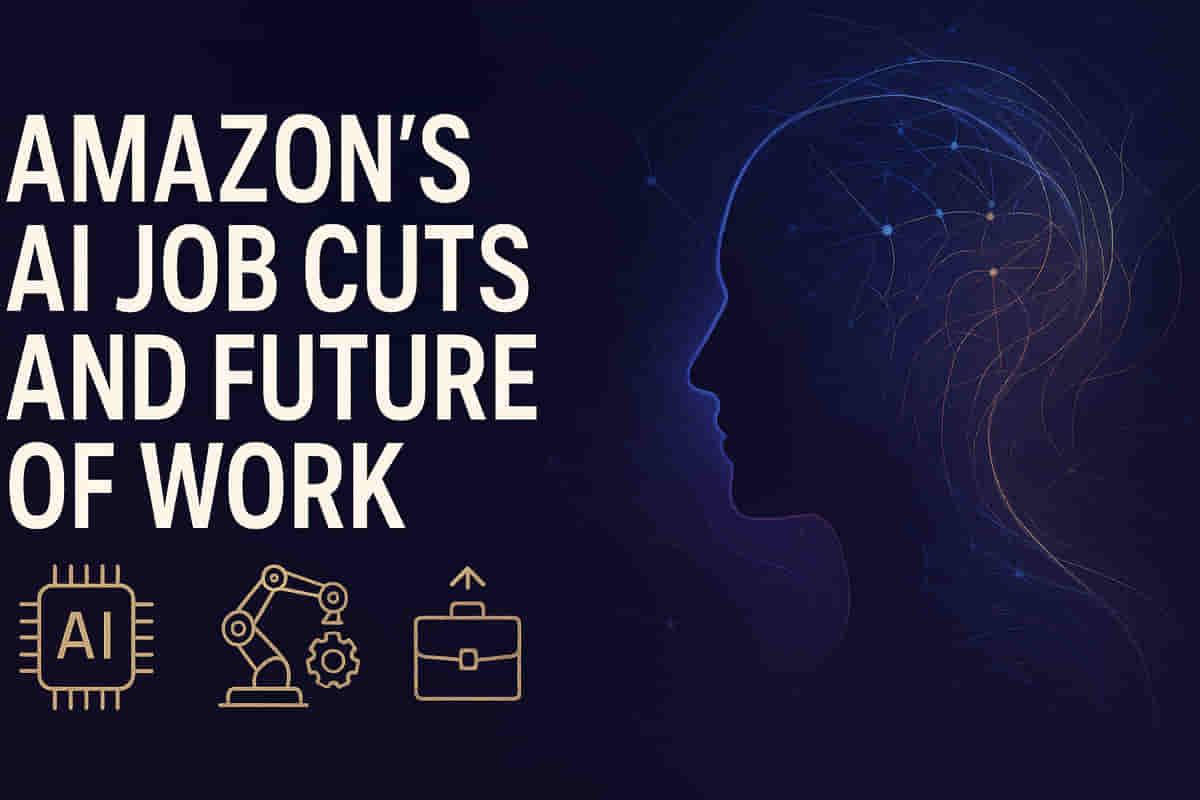Amazon Cuts Management Roles Amid AI Drive, Signaling Shift in Work Dynamics
Economy
|
30th October 2025, 7:42 AM

▶
Short Description :
Detailed Coverage :
Amazon is strategically cutting layers of management and coordination roles, while simultaneously accelerating investments in cloud and AI infrastructure, including a significant AI-focused campus. This move is driven by the increasing capabilities of artificial intelligence (AI) and automation to handle tasks previously performed by these internal layers.
According to Sonica Aron, Founder and Managing Partner at Marching Sheep, the company's focus is on corporate efficiency rather than headcount reduction itself. The roles being reduced are often those involving repetitive processes and administrative steps that AI and automation tools can now manage rapidly. This doesn't signify an end to large workforces, as consumption growth continues to necessitate more products and services. Instead, it points to a need for better alignment of skills, knowledge, and attitude.
The evolving landscape reshapes the equation between technology, productivity, and people, placing greater emphasis on cost, efficiency, and agility over tenure. This transition requires companies to handle changes with transparency and empathy to maintain trust.
Three key shifts are anticipated: 1. **Role Definition**: Moving from task-based jobs to flexible, problem-solving roles. 2. **Skills**: Prioritizing human-oriented 'survival skills' like emotional intelligence and adaptability alongside technical competence. 3. **Employment Models**: Increasing prevalence of hybrid work, project-based roles, and flexible contracts, demanding organizational support for employee belonging and growth.
This situation serves as a reminder for employees to continuously build relevant skills and for managers to lead with empathy.
Impact: This news signals a significant global trend where large corporations are re-evaluating their operational structures in response to technological advancements. For Indian businesses and investors, it highlights the accelerating adoption of AI and automation, the need for workforce reskilling, and the potential restructuring of job roles and industries. It underscores the importance of adaptability and strategic investment in future-proof technologies and human capital. Rating: 7/10.
Difficult Terms: * **AI (Artificial Intelligence)**: Technology that enables machines to perform tasks typically requiring human intelligence, such as learning, problem-solving, and decision-making. * **Automation**: The use of technology to perform tasks with minimal human intervention. * **Infrastructure**: The basic physical and organizational structures and facilities (e.g., buildings, power supplies, data centers) needed for the operation of a business or society. * **Redundant**: No longer needed or useful; superfluous. * **Efficiency**: The ability to achieve maximum productivity with minimum wasted effort or expense. * **Recalibration**: The process of adjusting or correcting something to bring it into line with a new standard or situation. * **Agility**: The ability to move, think, or act quickly and easily; in business, it refers to the capacity to adapt rapidly to changes. * **Tenure**: The length of time a person has held a job or position. * **Obsolescence**: The condition of being no longer used or useful; being outdated. * **Empathy**: The ability to understand and share the feelings of another. * **Psychological Safety**: A shared belief that the team is safe for interpersonal risk-taking, such as speaking up with ideas, questions, concerns, or mistakes.